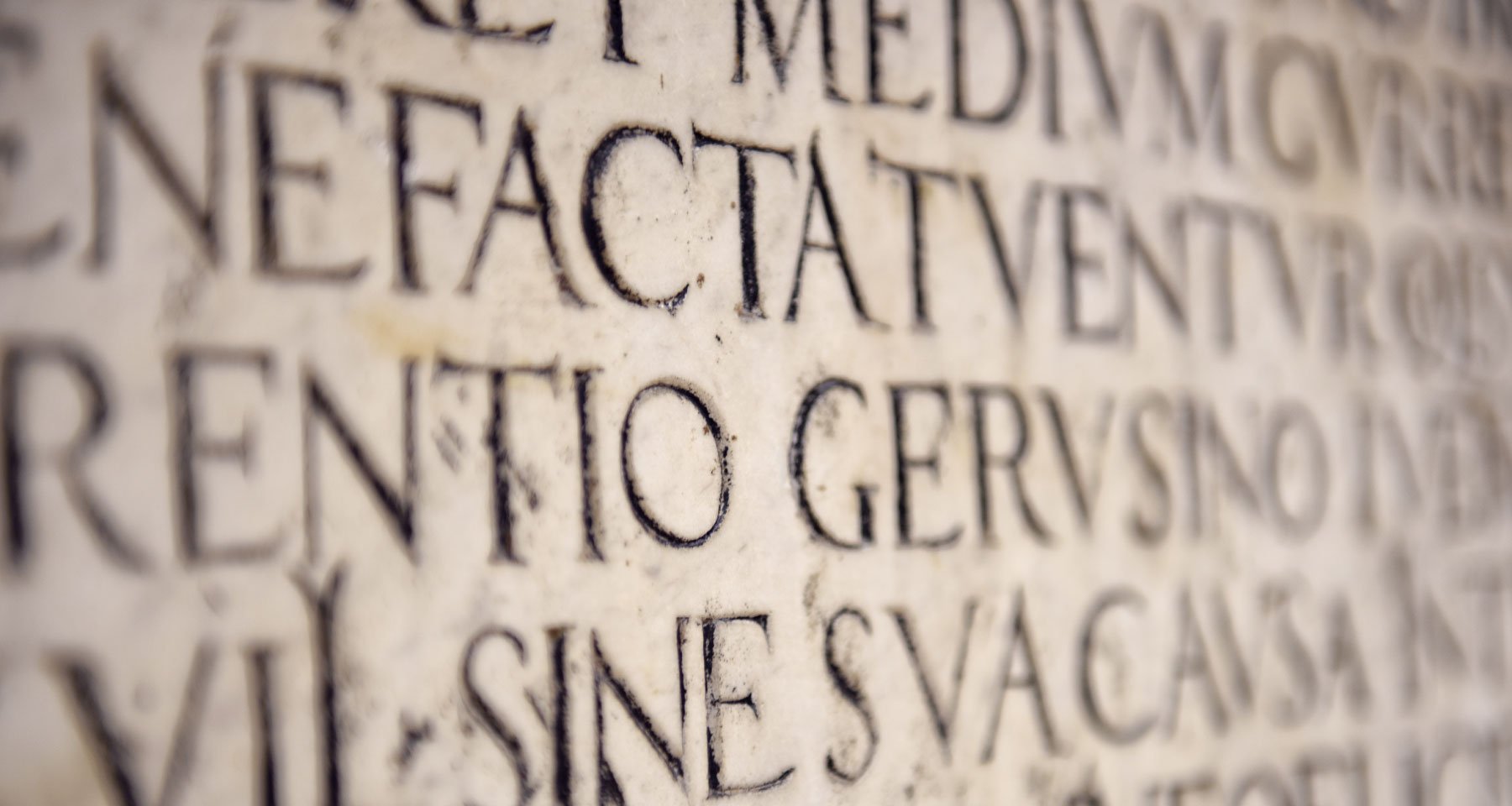No, Latin is not dead. It’s not that your teachers deliberately lied to you – they simply repeated a widely circulated claim they’d also heard somewhere. Today, the idea that Latin is dead is considered common knowledge. But it’s not accurate. To understand why, we need to quickly review the history of Latin and ask what makes a language dead in the first place.
So, what is a dead language? It depends on who you ask. Many think that a language is dead when nobody speaks it. According to this definition, Latin is as alive as Tom Sawyer watching his own funeral. Ever since Latin came into existence, there have been people who can speak it. This is true even today.
Somebody recently said to me (in English), “Latin is cool and all, but nobody speaks in Latin today.”
“Not only do people speak it,” I replied, “but people can speak it well enough to host podcasts in Latin. And that number is growing.” My interlocutor then let slip a word I won’t type out here – suffice it to say that he was shocked by this revelation. Yes, people do speak Latin, and they most certainly write it. There’s even a growing number of Latin novellas.
READ MORE: How Old is Latin?
Some will respond by saying, “Well sure, folks speak Latin, but Latin is dead because no new words are being introduced to the language. It’s merely academic.” This isn’t true either, as the existence of Neo-Latin dictionaries clearly indicates. Latin speakers can talk about all sorts of modern things: spaceships (astronaves), astronauts (astronautae or cosmonautae), rifles (sclopeta), the internet (interrete), and on and on.
There are, of course, more sophisticated ways of believing that Latin is dead. Following the discipline of linguistics, some believe that Latin is a dead language because there is no longer a community of native Latin speakers – in other words, you won’t find neighborhoods where families speak Latin in the home and children learn it as their mother tongue. While this sounds straightforward enough, it’s somewhat misleading.
It’s true that there are no native Latin speakers today – although it’s worth noting that Latin is still the official language of Vatican City. Still, no children are born and raised speaking Latin there. And nowhere in Italy will you find a community where people speak Latin as their primary language and use it in everyday life. So there’s some merit to the native speaker argument. However, if we follow this line of thinking, we run into problems. The same was true during the Medieval, Renaissance, and Early Modern periods in Europe: There wasn’t a single community using Latin in ordinary speech. According to the linguists’ definition, Latin would have been dead in those eras, too.
But how could this be? Can we really say that Latin was dead when it was the international tongue of literature, philosophy, theology, and law? Even well into the Early Modern period, some of the greatest Latin authors of all time were composing Latin-language masterpieces, authors like Erasmus, Melanchthon, Thomas More, and Rafael Landivar. Far from being dead, Latin was the most important language in the world – not unlike English today in terms of status and reach.
The term “dead language” does have an application in linguistics: It’s used to describe a tongue that has no more native speakers, isn’t passed on to the next generation, and consequently disappears. According to the Linguistic Society of America:
Many other languages are no longer being learned by new generations of children or by new adult speakers; these languages will become extinct when their last speaker dies. In fact, dozens of languages today have only one native speaker still living, and that person’s death will mean the extinction of the language: It will no longer be spoken, or known, by anyone.
This is a real phenomenon. It happened with Laua, a Papuan language whose last native speaker died in 1987. Laua is now extinct. The last native speaker of Tepecano, an indigenous language in Mexico, died in 1980. Tepecano is now extinct. However, this didn’t happen with Latin. Arguably, the last member of a community of native Latin speakers died in the 7th century – yet Latin clearly lived on.
While linguists acknowledge this, they seem confused about its implications. The same post by the Linguistic Society of America acknowledges that Latin didn’t follow this trajectory to the grave, yet they persist in categorizing Latin as dead. Why? Because Latin, they claim, is no longer spoken in the form we find in ancient writings. In this case, linguists and laypersons alike are wrong, and wrong for the same reason: People still speak Latin, and they do so in a way that Cicero or Augustine would have understood.
I’m not contending that the category “dead language” is useless. It captures a real phenomenon in human history. Languages do die – Latin just isn’t one of them.
The Ancient Language Institute exists to aid students in the language learning journey through online instruction, innovative curriculum, and accessible scholarship about the ancient world and its languages. Are you interested in learning an ancient language?




